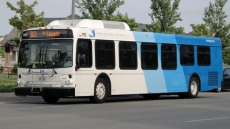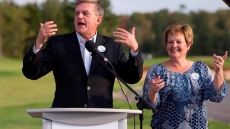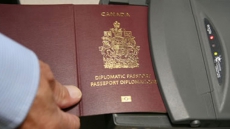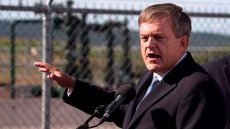WASHINGTON — From within the Obama cabinet, there's a new argument being made against the Keystone XL pipeline — and this one involves aboriginal rights.
A U.S. cabinet member has cited aboriginal lands as a concern as her colleagues in the Obama administration near the completion of a review into the Canadian oil project.
The secretary of the interior laid out that concern in an interview.
"I think the fact that tribal nations are standing up saying, 'We're concerned about this. We're concerned about water quality. We're concerned about tribal sovereignty. We're concerned about what this pipeline may do for our lands and our rights,' needs to be heard," Sally Jewell said in an interview with MSNBC.
"In my role as secretary of the interior we will make sure there is a platform for those tribal voices to be heard. And I think they will be able to make a very effective case, because they know their lands better than we do."
Last month, a South Dakota tribal leader warned that approving the pipeline would be an act of war. Sioux Rosebud president Cyril Scott said the pipeline would cross treaty lands and that his people weren't consulted as a sovereign nation.
Pipeline opponents celebrated Jewell's words.
A Nebraska activist who helped organize the initial campaign against the pipeline described it as a first in the years-long debate — since the conversation hasn't dwelled much on aboriginal concerns, as opposed to the economic effects, climate concerns, and even ranchers' rights, which have driven the discussion.
"For the past five years, the voices of Native Nations have not been acknowledged in a public and high-level way," Jane Kleeb said in an email Thursday.
"They just were."
She said the White House has now acknowledged the opposition of both ranchers and tribes, which she called key to stopping the pipeline.
The White House has previously cited a lawsuit involving ranchers as one reason it can't yet make a decision on the route. A small fraction of landowners on the route in Nebraska are still fighting the project, and a decision is expected within weeks by the state Supreme Court.
A decision by the administration could come any time thereafter. The final call ultimately rests with President Barack Obama — following a review led by the State Department, with input from other departments.
The pipeline company, meanwhile, said it was going above and beyond legal requirements to work with aboriginal communities.
"Keystone XL does not cross any reservation lands or lands held in trust," said a statement from Mark Cooper, a spokesman at TransCanada Corp.
"However, as part of TransCanada's Native American Policy — and despite the pipeline not crossing any reservation lands or lands held in trust — we do offer to provide community investment funding to tribal communities for various training programs, education programs, scholarships and work opportunities in their communities."
A bid to force approval of the pipeline made it halfway through Congress, before a bill stalled last month in the Senate.
The issue will resurface in the new year — either through a new piece of legislation when a new Republican majority takes control of the Senate, or through a decision to approve the project by the Obama administration.
In either case, however, the final decision is still Obama's. That's because even a bill on the pipeline, passed by Congress, couldn't become law without his signature.





